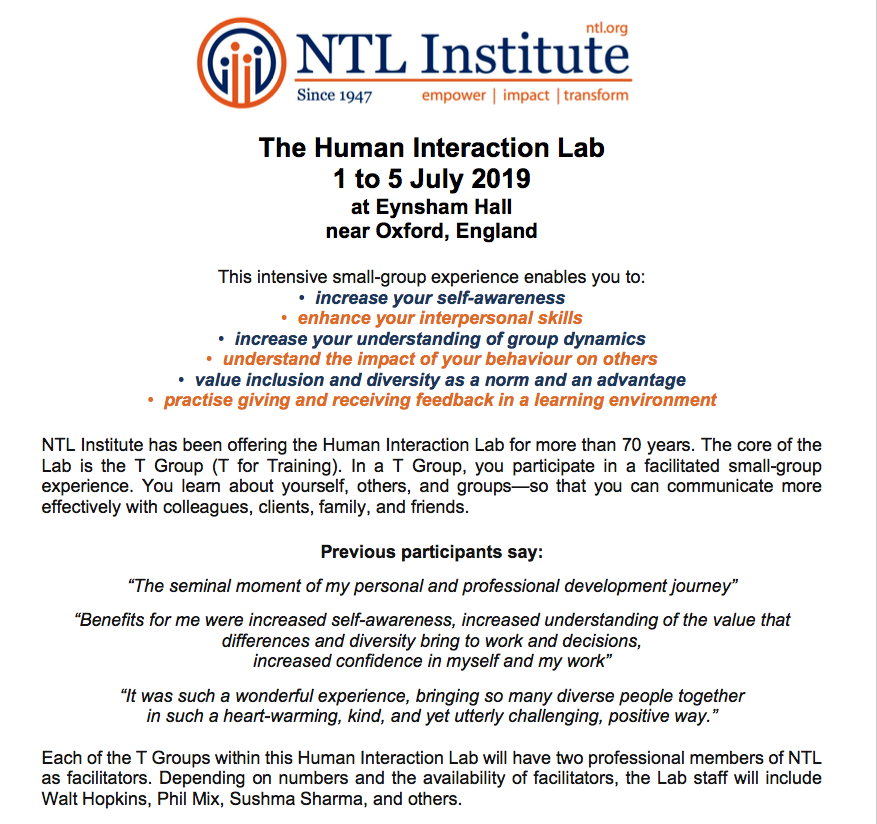T Group & Human Interaction Lab

For more information on your participation, your accommodation, our bursary fund and our Eartly Bird discount download the Flyer
Download Flyer
Download Registration Form
The T Group (T for training) is a process of discovering what happens in a group when we meet with no agenda except a passionate commitment to understanding ourselves, each other, and our group.
The T Group is the core of the Human Interaction Laboratory developed by NTL Institute. The HI (Human Interaction) Lab is a laboratory for learning about interpersonal relations and group dynamics, with a focus on developing interpersonal skills while giving and receiving feedback. The lab provides an intensive small-group experience, an informal atmosphere of shared learning, and an opportunity for behavioural feedback and assessment.
As you combine your T Group experience with the conceptual frameworks that we present during the HI lab:
-
you increase your awareness of the effects of your behaviour on others
-
you enhance your communication skills
-
you increase your ability to understand yourself and others
-
you develop the ability to give and receive feedback responsibly
-
you have a clearer understanding of group development and group dynamics
-
you become more aware of diversity issues.
My own experiences as a participant in this kind of intensive group are still memorable after nearly forty-five years and I have been leading such groups since 1971. As a professional member of NTL Institute since 1983, I have led many Human Interaction (HI) Labs. I have been the Dean (the lead trainer) of a series of International HI Labs and I was the first Dean of the first Appreciative Inquiry HI Lab in 2005. I have been the Dean of the HI Lab that each year since 2007 has begun the annual NTL Organisation Development Certificate Programme run by Quality & Equality in Oxford, England.
My colleague Sushma Sharma (one of the co-developers of that first Appreciative Inquiry HI Lab back in 2005) and I have continued to use that approach as we co-lead Appreciative Inquiry T Groups in Singapore, India, the US, and the UK.